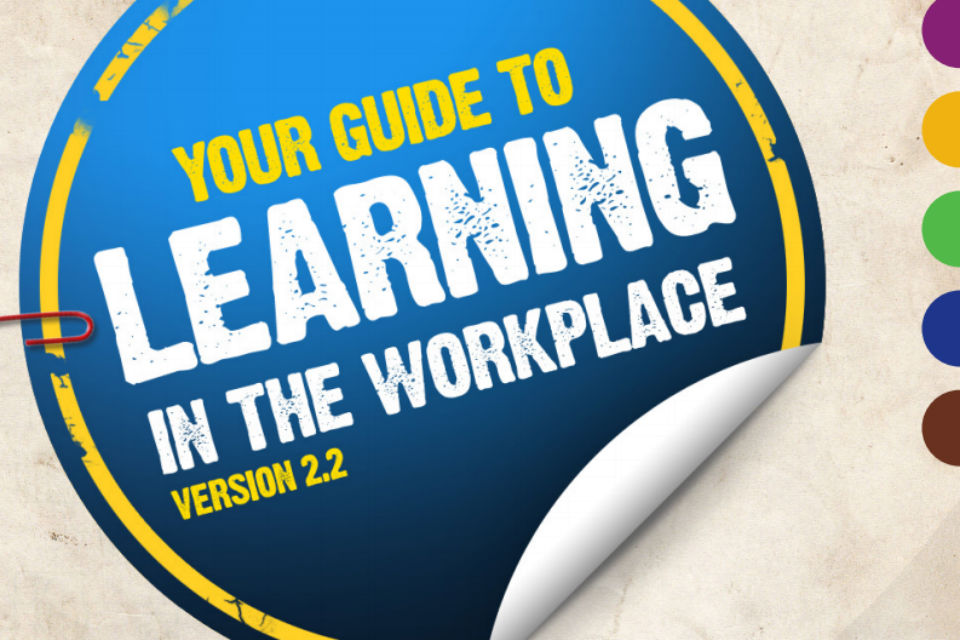
I work in Civil Service Learning (CSL), and a big part of my job is to keep on top of developments around effective ways to learn. I am also studying for my Chartered Institute of Personnel and Development (CIPD) membership exams, which brings with it a reading list the length of my arm!
The concept of work-based learning chimes with me because I read about it every day. But when it comes to the real world – the day-to-day pressures of front-line operations, getting invoices paid on time or a new policy implemented – is it actually helpful? Or – as is sometimes suspected – is it simply a cheap alternative?
Work-based learning
By work-based learning, I mean the myriad of things you can do while carrying out your job, which help you to learn new things. This could be anything from brainstorming a problem with others, to reading an article related to your area of work or observing a colleague in action doing something you want to learn more about. And my view is that there’s huge value in these activities. Yes, of course there may be times where more formal learning will fit the bill, but don’t make the assumption that a course alone is always the best option. Often the learning you do back in the office helps to consolidate what you got from a course and shows you how to put it into practice.
CIPD – the professional body for learning and development professionals –notes the prominent use of ‘in-house development programmes’ by many successful organisations. These use a blend of formal courses and work-based learning, such as shadowing, especially as a means of developing managerial staff. Linked to this, there is a shift from technical training courses to broader development, where an individual undertakes a range of learning activities over time. The argument is that this learning and development agility is necessary to support changes in all sectors of the UK economy – and the Civil Service is no exception.

What about my own learning? Well - all the reading I’ve done is fantastic for understanding the theory, but it’s not enough on its own. I’d like to start delivering some really good learning sessions of my own, so I’m getting involved in some upcoming ones to get the practical experience I need. I plan to ask more experienced colleagues lots of questions and to spend time observing them – in other words, I’m going to do some work-based learning.
Make a note what you do
And finally, don’t forget to acknowledge and record the work-based learning you, and those in your team, do. Otherwise, when it comes to end-of-year performance discussions, it might only be the face-to-face part of the picture that gets covered (and counted towards your 5 a year). And all that broader development will be forgotten.
That’s the end of my musings for now. My final advice? Have a look at CSL’s workplace learning guide, which gives you a great place to start!

1 comment
Comment by Alan Meyrick posted on
Gill, I was interested to read your 'blog'; I am a trainer in APHA and am an Associate member of CiPD having taken a course to qualify to train colleagues. It is very rare now that we provide classroom training, the emphasis is very much on e-learning modules, which I develop using Adobe Captivate and have become quite adept at it, even though I say so myself. I accept that not everyone finds using e-learning easy though for one or two modules I have incorporated 'quizes' so that individuals can check what they have learnt and hopefully then apply this at the workplace. Unfortunately, my frustration is that APHA does NOT have the commitment to fund my resource to keep reviewing materials I have developed, to update where systems change or where colleagues ask for guidance on particular processes to help them to understand and apply this understanding to their day-to-day work. My involvement now is very much ad hoc - I may be asked to work on a new module if a new IT system is to be rolled out, but the Agency do not consider running Training Needs Analysis to discover what else can be delivered to help colleagues to further up-skill themslves in their day-to-day operations. Well you appear to have the right attitude in CSL - if only that were the case in APHA.